A day at Wangala festival with the Garo community

The grounds of Lalmatia Housing Society School and College came alive with the beats of drums and the colourful celebration of Wangala, the foremost festival of the Garo community. Known as the "Hundred Drums Festival," Wangala is a time for the community to thank Misi Saljong, the Sun Deity, for a successful harvest. This festive celebration marks the end of the farming season and celebrates the blessings of nature.
Much like how Bengalis celebrate Nobanno Utsab to honour the new rice harvest, Wangala represents a shared connection between people, nature, and tradition. It's a day filled with gratitude, music, and dance, honouring the vibrant culture of the Garo community and their strong bond with the land.
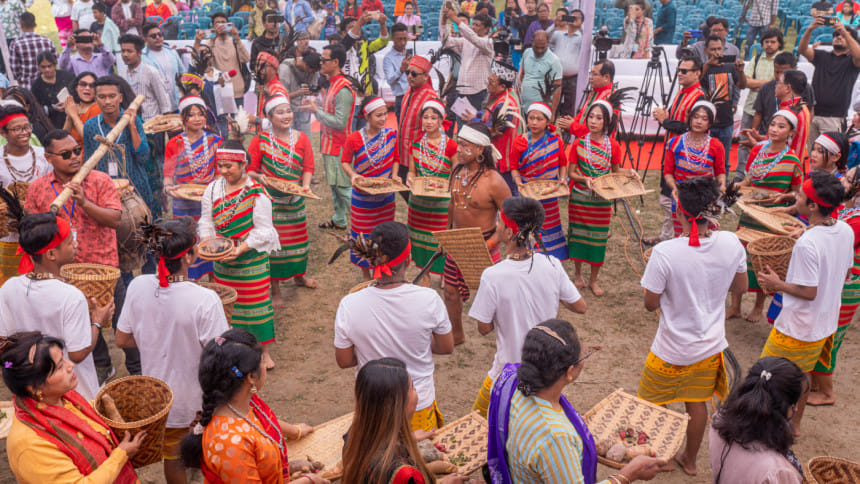
The Nokma (President) of this year's Wangala festival, Onto Ghagra, shared his insights with The Daily Star, stating, "Although 95% of our Garo community practice the Christianity, we have been gathering over the last five years during the months of November and December to celebrate Wangala as an expression of gratitude to the deities for a bountiful harvest."
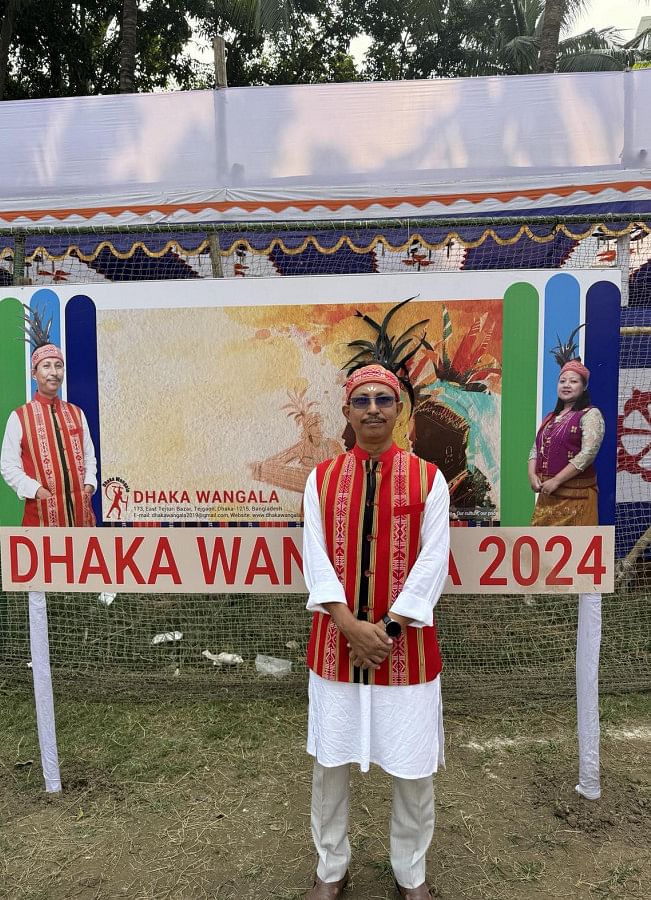
When I was initially assigned to cover the event, it didn't occur to me until I arrived at the venue that it was the very Wangala festival we had studied in our "Bangladesh Studies" textbook, under the chapters on "Indigenous Communities." As I stepped into the festival grounds on a bright winter morning, the sunlight lit up the preparations that were underway to bring the Wangala festival to life.
Over 50 stalls had been set up, offering a variety of traditional foods, handmade and age-old jewelry, Garo clothes, and other attractions to ensure visitors could enjoy their time at the festival.
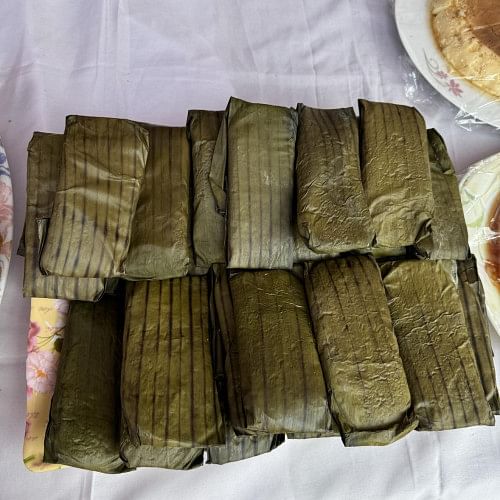
Among the many culinary highlights, a common traditional Garo dish found in almost every stall was "Ishalmanthi," wrapped neatly in banana leaves. The term "Manthi" refers to what we call Pitha in Bengali. One unique dish that stood out to me, however, was Patishapta made from black sticky rice flour, which added an uncommon twist to the otherwise familiar festival fare.
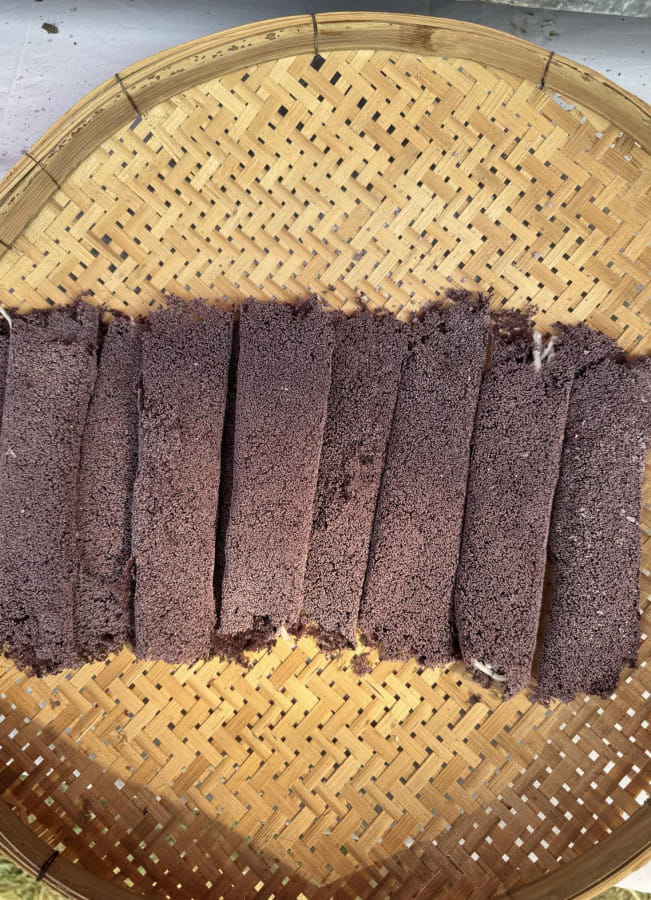
Other traditional Garo curry items include, "Wak Fura" (pork curry), "Chuchuru" (chicken curry), "Datta Goppa" (chicken curry), and "Mashu Bidud" (pork curry), among others.
While strolling through the stalls and observing the Garo people making preparations for their big day, we noticed other media outlets present to cover and showcase how the Garo community celebrates and preserves their long-rooted Wangala festival. However, what my peer and I found concerning was the sense of superiority displayed by some of our own people.

The Garo community, with its distinct traditions, languages, and practices, had warmly welcomed us to be part of their celebration and to help spread awareness of their culture. Yet, instead of embracing this opportunity with humility, some chose to project a sense of dominance, as if they were doing the community a favour. This attitude reflects a fundamental misunderstanding that culture is not about claiming superiority but about mutual learning and respect, to be understood and appreciated that each tradition brings.
The festival came to full swing on Friday evening as members of both the indigenous community and the general public gathered at the festival. A delightful twist to my day was running into my go-to salon owner, Anny Apu, who belongs to this community. With a smile, she remarked, "Never thought I'd see you anywhere outside my parlour!"
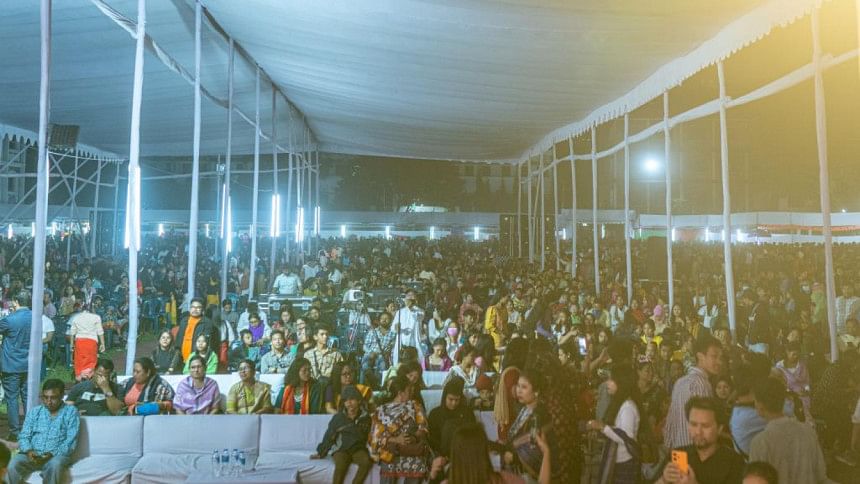
The cultural programme began with the songs "Dania" and "Boodematim." While I couldn't grasp the lyrics, their catchy tunes were delightful. Other songs included "Jiptomree" and "Dimdim Dimchong," but the one I connected with most was the folk song "Harara," which expresses gratitude for a successful harvest.

The festivities peaked with the Garo traditional dance, "Joomchash," where men sported dhotis or lungis with sleeveless vests, while women dressed in Dakmanda, a handwoven wrap skirt with a matching blouse, complemented by feathered headgear called "Khutuba."

Cultural celebrations like this not only foster unity within communities but also create opportunities for others to learn and appreciate different ways of life. For instance, during the festival, activities came to a respectful halt to honour the Azaan, the Islamic call to prayer. At its heart, culture is a living story, constantly adapting, growing and evolving, much like the people who carry it forward.

 For all latest news, follow The Daily Star's Google News channel.
For all latest news, follow The Daily Star's Google News channel. 

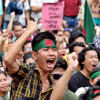

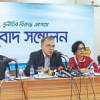




Comments